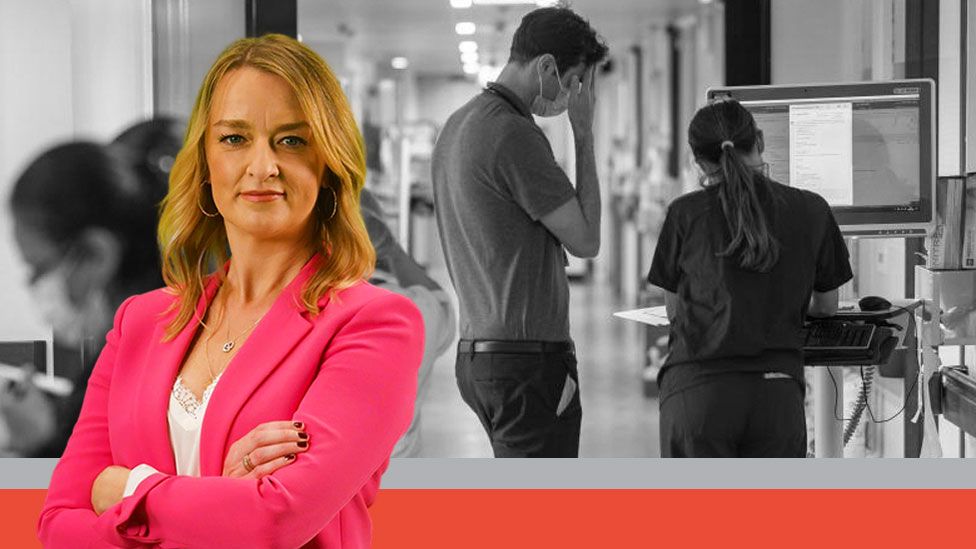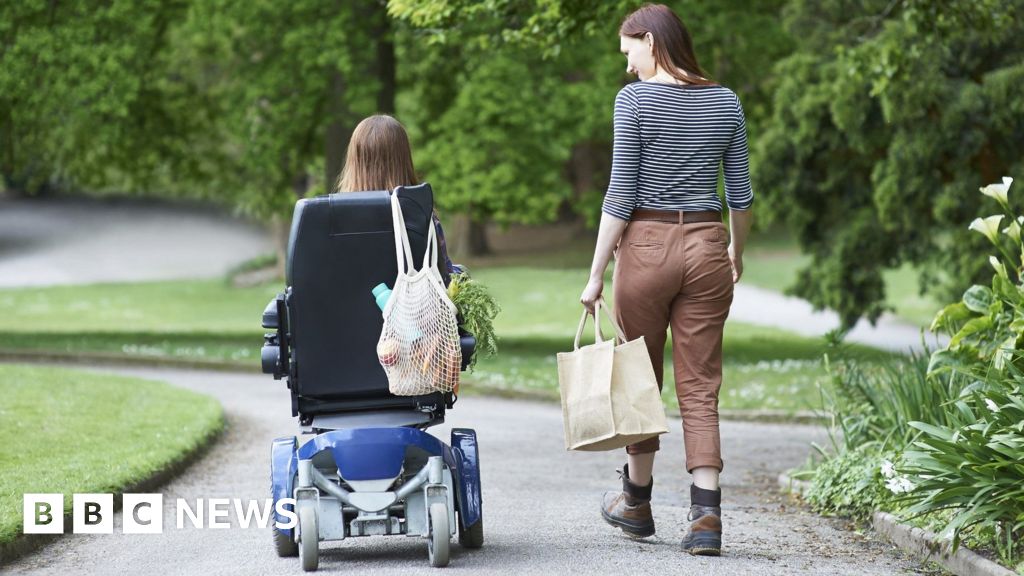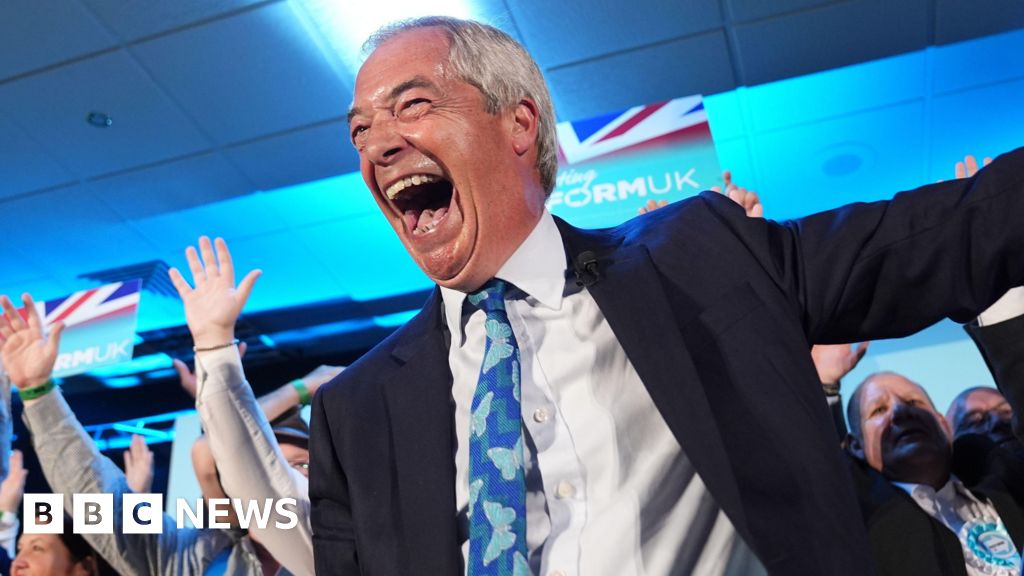ARTICLE AD BOX

If you're feeling charitable, you might say things are not going well for the government.
But if you're feeling grumpy - perhaps because every morning you're leaving the warmth of your duvet to shiver in the freezing morning cold - then you might suggest No 10 is bouncing from bungle to bungle.
The bizarre diplomatic row with the Greeks over relatively niche artefacts (which has even piqued the King's interest). The home secretary's hot-mic swearing. Judges kicking out the centrepiece of Sunak's plan to "stop the boats" (more on that later). And as if that wasn't enough, Boris Johnson is getting his arguments in early before his appearance at the Covid inquiry - Rishi Sunak will soon take the stand too.
As the temperature plummets, there is a different risk that might trump all of them: what will happen to the NHS this winter?
Last year, pictures of ambulances queuing for hours outside hospitals became familiar - agonising stories of delays and long, dangerous waits dominated the news.
The Health Secretary, Victoria Atkins, is with us in the studio tomorrow and how she fares in the coming months is absolutely vital for her party's prospects. One of her MP colleagues told me: "I'm not sure she realised it when she took the job, but for a lot of us, whether we win is dependent on her."
Image source, EPA
Image caption,Victoria Atkins was appointed Health Secretary in last month's Cabinet reshuffle
Take a look at the broad state of the service and it's not pretty. Nearly 7.8 million people are on the NHS waiting list - a record high. This is partly explained by the pandemic, as government ministers always remind you with some justification.
But check the figures more thoroughly and you can see that many of the numbers - from cancer treatment times to waits for diagnostic tests - were trending the wrong way before Covid-19 hit.
Now, thousands of patients are in hospital not because they are too sick to leave, but because they don't have the help they need to get home. In October 2023, there were between 12,000 and 13,000 patients stuck like this, with the obvious knock-on effects for others needing care. That is roughly the same level as it was at last year, despite promises of action.
There are more than a 100,000 staff vacancies, shortages of NHS dentists and difficulties in getting mental health care. A series of bitter industrial disputes hasn't helped.
It is not, of course, all bad. Every day millions of people receive brilliant life-saving care. The government trumpeted meeting its manifesto promise to hire 50,000 extra nurses this week, and there are amazing advances in some forms of treatment.
But there is acute concern about what is going on in wards, clinics and practices all around the country.
A nurse told me after finishing another long shift this week: "The government are making out they're doing a great job, patting themselves on the back, but nothing could be further than the truth. Patients and their families fill up bays and corridors and every shift is short staffed."
One of our viewers told us they had to wait nine hours to be seen in their local A&E in the North West last week, followed by an even longer wait for a bed on a ward.
Those fears go beyond anecdote and are widely felt, with the NHS often second only to the cost of living among voters' key concerns. One pollster tells me that in every focus group "there is an NHS horror story", alongside frustrations about not being able to see a GP or emergency wards being like "war zones".
- On this week's show is Health Secretary Victoria Atkins, who was promoted to the post last month
- We'll also hear from Labour's shadow business secretary Jonathan Reynolds
- And Ndileka Mandela, social activist and granddaughter of Nelson Mandela, joins us live from the COP28 climate summit
- Watch live from 09:00 BST on BBC One and BBC iPlayer or watch and follow updates here on the BBC News website
- Email the show anytime: kuenssberg@bbc.co.uk
The Prime Minister is well aware how important the service is to voters. Labour is well aware how vulnerable the Conservatives might be. In previous elections the party has had to struggle to get it onto the agenda, with their familiar cry of Labour having to "save the NHS". They won't struggle this time.
For whoever has the job after the election, a fundamental, long-term puzzle remains. The NHS has more money and more doctors than ever before. But according to the number crunchers at the Institute for Fiscal Studies (IFS) think tank, it's treating about the same number of patients. In other words, the taxpayer seems to be getting less bang for its many billions of bucks.
NHS England says it's more complicated than that. The figures focus on acute hospital care and only look at the numbers of people treated, it says, not the quality of care. But it does admit there are productivity challenges.
The "productivity problem", as the IFS calls it, is a big deal. The less productive the NHS is, the more the government - and therefore taxpayers - have to spend for the same level of healthcare.
Our population is older and sicker, the health service more and more expensive, taking precedence over other parts of public spending. And just to remind you - as I seem to do every week - none of the big parties have yet come up with a fully worked-out plan for caring for the most elderly and vulnerable. Without that plan, the problems in the health service are much harder to solve.
Most politicians would privately say it's hard to have candid conversations about radical long-term solutions because the public has such affection for the NHS, even when their own experiences might fall far short. But in the next couple of months, with winter coming, and pressure building, longer term discussions are likely to have to wait.
Is Rwanda problem about to return?
P.S. As we talked about last week, the government has a nightmare job on handling migration. Do not underestimate how fractious this is becoming as an issue on the Conservative backbenches. Cabinet ministers deny there is a vicious stand-off over how far the government should be willing to go in new promised laws, in light of a court decision to kick out their plan to send asylum seekers to Rwanda.
One source says there is a perfectly good reason for the delay to what was dramatically described as "emergency legislation" - it can't be sorted out until the revised treaty with Rwanda is concluded.
If that's true, no one seems to have told the backbenchers - and in the vacuum there is furious chatter. Several sources have even suggested to me in the last couple of days there could be real fireworks, potential ministerial resignations, and Rishi Sunak's leadership even questioned. One senior Conservative joked that there is someone who knows how to do the job back in Cabinet and could be a caretaker (yes, they mean the new Lord Cameron).
I stress, all this seems pretty far-fetched, but the fact that even those speculative conversations are happening is a symbol of the deep unease.
What questions would you like to ask Laura's guests on Sunday?
In some cases your question will be published, displaying your name, age and location as you provide it, unless you state otherwise. Your contact details will never be published. Please ensure you have read our terms & conditions and privacy policy.
Use this form to ask your question:
If you are reading this page and can't see the form you will need to visit the mobile version of the BBC website to submit your question or send them via email to YourQuestions@bbc.co.uk. Please include your name, age and location with any question you send in.

 1 year ago
32
1 year ago
32








 English (US) ·
English (US) ·